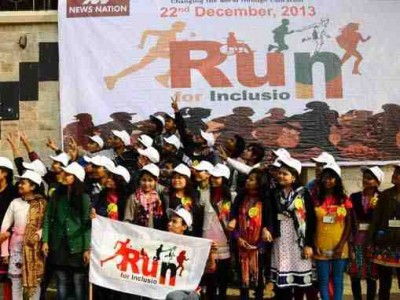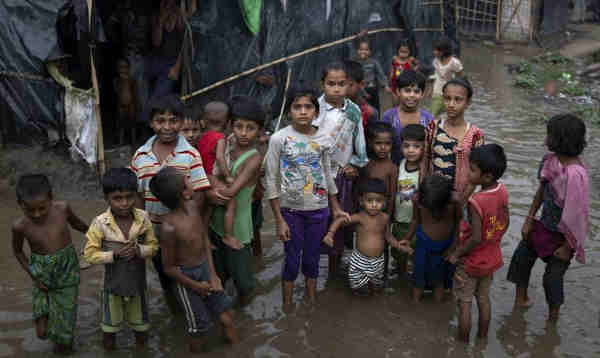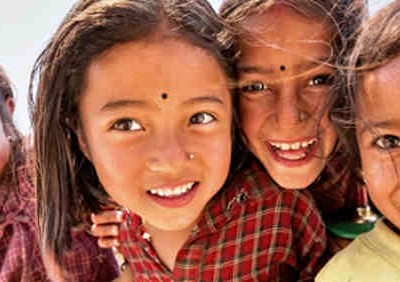
Rohingya Refugee Children Face Deadly Monsoon Rains

Rohingya refugee children wade through flood waters surrounding their families’ shelters following an intense pre-monsoon wind and rain storm in Shamlapur Makeshift Settlement, Cox’s Bazar district, Bangladesh on 20 May 2018. Photo: UNICEF
Several days of heavy monsoon rainfall in the Rohingya refugee camps of southeastern Bangladesh pose a major threat to over 100,000 children living in them, UNICEF has warned.
The rain has caused landslides which killed five Bangladeshi children and injured several others in the district of Cox’s Bazar. The deaths highlight the danger facing Rohingya refugee children living in fragile and dangerous conditions in nearby camps, many of which are also susceptible to landslides.
As much as 463 mm of rain has fallen within a 24-hour period in Cox’s Bazar earlier last week. UNICEF officials say that hundreds of refugee shelters have been damaged or destroyed, affecting at least 4,000 refugees including many children.
Even if the rain stops, the danger of landslides in the hilly refugee camps – which are home to one million people – remains as the water seeps into the ground and destabilizes it further. The sustained heavy rains of recent days are unlikely to abate as the monsoon season reaches its peak.
[ 50 Volunteers Wanted for New Education Campaign in Delhi ]
“The monsoon exacerbates all other challenges children face inside this humanitarian response,” said Edouard Beigbeder, UNICEF’s Bangladesh Representative. “Normal conditions in the refugee camps are poor. Rohingya refugees live in cramped shelters, where risks to children’s health and safety are high.”
Scores of facilities run by UNICEF and its partners including Learning Centres and Women and Child Friendly Spaces are at risk.
Humanitarian agencies have made contingency plans for the temporary evacuation of refugees. Alerts have also been issued to the Bangladeshi host population residing in hilly areas near the camps about the possibility of landslides.
UNICEF and its partners are providing tarpaulins and other supplies to reinforce its key programme activities such as Learning Centres to minimize the impact of the rain.
Photo courtesy: UNICEF


